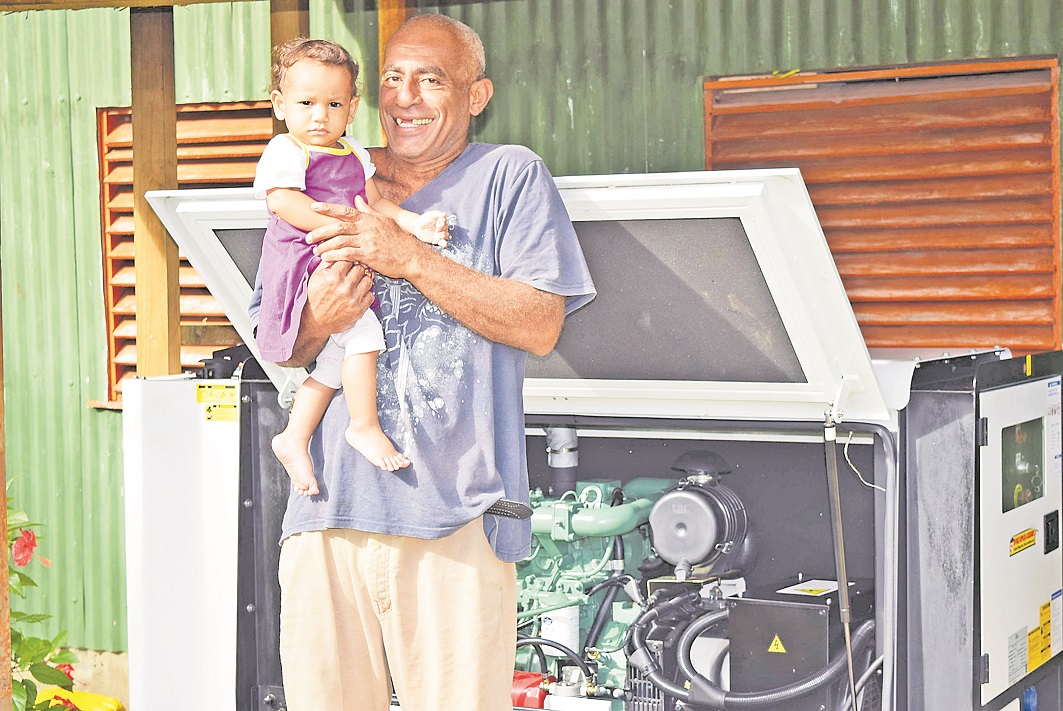RURAL villages should start transitioning to green sources of power and reduce its dependence on fossil fuel.
That is what Beqa islander, Jonacani Dabea believes in.
Jonacani manages Rukua Village’s daily solar and diesel power supply.
On a sunny day, solar panels provide villagers with power, between 9am and 6pm, while a diesel generator provides electricity between six and 10 in the evening.
For many years, Jonacani lived with his grandmother in Galoa, Serua before he decided to move to his village and toil the land.
“Adjusting to village life was difficult for a few years but now I’ve gotten used to the people, social life, food, church and the culture,” he said.
Jonacani’s job is important because it ensures women are able to carry out their household chores effectively and children are able to do homework and study in the evening.
At times, he is assisted by his wife, Merewairita.
In one night (four hours) alone, Rukua uses up 10 litres of diesel which translates to 70 litres a week or 280 litres a month.
Each house consumes $2.80 per unit per day.
“That’s a lot of power so I always encourage people to use it wisely. With a lot of focus nowadays on climate change, I believe we need to reduce our use of fossil fuel and move to greener sources of energy.”
“I’ve also had to ask people on many occasions to practice caution when using electrical appliances as overloading could damage household metres or even cause accidents.”
Jonacani said in 2014, when the solar panels was in working condition the village was making $35,000 a year from solar energy.
“Solar got in a lot of money for village projects and expenses. It was also clean, produced no emission and was quiet.”
But some of the batteries are not working and need fixing.
The village is hoping Government would intervene soon so that the village could go back to full-time solar power supply and reduce its reliance on diesel fuel.
The solar batteries had cost $80,000 to install.




